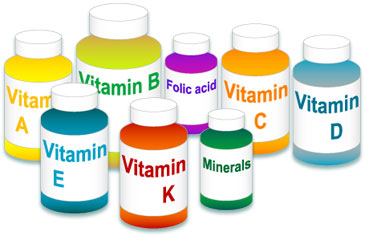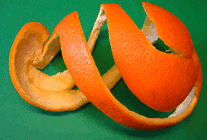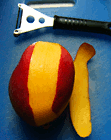After being diagnosed with diabetes, I must admit the past few weeks have been filled with many new and personal challenges... As we know, life's problems do not stop at diabetes, or any other chronic illness, nor do they care if we're having to juggle other things. In fact, in the storm of life... sometimes when it rains, it just pours. (I need to buy a raincoat.)
So... why not take a little time to address a common, and often overlooked, issue with diabetes? Anger.
 Before I get a little further into the discussion, I want to add that while the emotions we experience through the ups and downs of illness, and life, are perfectly normal... this blog post is in NO WAY a justification for aggression, violence, or abuse. It might be an EXPLANATION of a course of events, but in the end... we are responsible for our own selves, and how we manage our health, and our emotions.
Before I get a little further into the discussion, I want to add that while the emotions we experience through the ups and downs of illness, and life, are perfectly normal... this blog post is in NO WAY a justification for aggression, violence, or abuse. It might be an EXPLANATION of a course of events, but in the end... we are responsible for our own selves, and how we manage our health, and our emotions.
Now, in order to make some of kind of sense of the emotions a person with diabetes might feel, we need to understand one thing: Diabetes is a PERVASIVE life change. It is one of the most pervasive life changes an 'afflicted' person will ever have to face. While it may not seem as such in the beginning stages (especially for type 2, and often during a "honeymoon phase" for a type 1), with time, an individual will soon become painfully aware of just how MUCH diabetes will demand of them.
Diabetes demands that we (and often our loved ones) learn a LOT of information in a short amount of time, and often more than many medical professionals; that we completely change how we view our eating habits, and what we consider healthy according to the whims and demands of a little electronic gadget called a 'glucose meter;' that we throw away the information we once thought made SENSE, for a new, and obscure world which we merely go about feeling, through the grace and support of others who have been there before us; that we are on alert to protect ourselves from the harm of careless outsiders, or clueless third parties. It demands that we learn to 'forecast' how meals will affect us, depending on their level of carbohydrates, fiber, protein, and fat, and sometimes... algebra, and the phases of the moon! :) And yes... just to throw a nice wrench in it, diabetes often demands FAMILY UNITY and outside support. Diabetes... is a THIEF of spontaneity. It demands you plan out almost every moment of your life.
Let's face it, if most of us got into a relationship with someone who was like this, we'd call them CONTROLLING... And most of us can't handle change very well, let alone pervasive change. A social network like Facebook changes how some things look, and feel, and millions of people get up in arms, and feel imprisoned! Living in harmony with a controlling, and demanding disease like diabetes, is NOT an easy feat for the weak-hearted, or for those who fly off the seat of their pants. It is HARD work; often 24/7 work. It is like chess; one always needs to think 2 or 3, or 4 moves ahead. If you snooze... you lose.
Being diagnosed with diabetes, in itself, can be anger inducing. We often feel like we have failed somehow. Whether it's type 1, or type 2, folks often feel a big burden of guilt over past habits or parenting, or perceived flaws (however erroneous those might be.) Often, folks who were diagnosed with type 2 diabetes may have been fighting, or struggling with weight and eating habits for years, before feeling like they were given a 'death' sentence for 'failing' to make the grade at these tasks. To top it off, few medical professionals discuss how BIG the role of our genetic make up is when it comes to diagnosis (Which is not accurate by the way.), and how even folks who are thin, or otherwise in relatively good health, can end up with a diabetes diagnosis.
Instead, diabetes is portrayed as the disease of the obese and inactive, and not simply a mineral deficiency disease. If the proper minerals are taken with certain co-factors and vitamins, type 1 diabetes can be managed better without the loss of limbs or eye site. And type2 can even be reversed!
Diabetes doesn't just bring with it a lot of self blame... It often brings with it the blame of outsiders who poorly understand this disease. This is, in part, the fault of our current medical professionals, and in part, the fault of our media who is looking to market to, and cash in, on a 'growing' population.
One would think that for such a deadly disease, there would be many prepared and able medical professionals, and certainly... there are some great ones out there. However, the amount of uneducated, misguided, and often, dangerous medical professionals out there, is staggering. Many patients, particularly type 2s, are left out in the dark... with little information as to what they have, and how to proceed. They are often kept from access to specialists, educators, testing tools, and insulin... so managing this disease, and learning how to do so in what one would think should be a safe environment, are often HUGE, and frustrating, hurdles. Many folks end up erroneously thinking this is a disease of avoiding sweets -- which it is not -- and are left not understanding why they can't make strides, and worse, being judged and labeled as "non-compliant."
The amount of new information we are learning about diabetes, every day, is far outpacing the amount of continuous diabetic education many medical professionals are receiving. This leaves us with a world of antiquated guidelines, and outdated diabetic organizations... leaving many patients out there, clueless, and confused.
The fact is that Diabetes is in actuality a mineral deficiency disease.
If the proper minerals are taken with certain co-factors and vitamins, type 2 diabetes can be managed and even reversed!
Diabetics are poorly understood...
It follows that because diabetes is such a pervasive disease, and such a complicated and misunderstood disease, that diabetics themselves would be misunderstood.
Many folks can understand the need to keep a home free of elements that might provoke a deadly allergy, in a family member, such as nuts... Few folks can understand what it's like to have to completely re-structure a life after a disease, and require the support of the entire family unit to achieve it. Often, family members or friends, might think that diabetes is just the person's problem, and that they don't need to contribute or support in any way. They don't want us to "cramp" their style, or to have to change on our account, in any way. Often, for example, if a person with diabetes is the cook in the home, they end up making different meals for their family, or may even get little acknowledgement for their desire to have a healthier pantry in the home.
Feelings of frustration, anger or resentment, are often met with snide comments of disbelief: "What's the big deal? You can eat that...," "Just diet and exercise and your diabetes will go away...," "So? Just stop eating sugar...," "I don't see why you feel so sick, you must be faking...," "You brought this on yourself, anyway... It's your fault... I'm not the one with diabetes...," "Please don't bore me with your disease...," "At least it's not cancer...," etc...
For the diabetic, it's often a lonely world, especially if one does not have a support group to vent in. Our struggles often go unacknowledged, and we can be viewed as drama queens, or hypochondriacs 'obsessed' with our disease. It is a 'nuisance' for others to change, especially if that change is INDIRECTLY related to them. Diabetics will often feel left out of activities involving food, particularly if the items are challenging and no longer doable for them.
I wish diabetes was JUST a misunderstood disease; the problem is people will make decisions BASED on that ignorance, and misinformation.
Doctors choose to not educate themselves because it's a disease that can be 'avoided' and it's the person's fault; insurance companies choose to not cover services, supplies and medicines, and testing tools, because it's a disease that could have been 'avoided,' and it's the person's fault; employers choose to not respect diabetic's needs because they see them as 'making stuff up' because according to many poor doctors, it's 'no big deal,' and it could have been 'avoided,' and it's the person's fault... and it keeps snowballing and snowballing.
You get the idea.
For diabetics, proving themselves as worthy patients, employees, friends, and family members, is often a daunting task. NO ONE today would dare go accusing someone with AIDS of giving themselves a disease, and chastise them; however, this is often the bread and butter of diabetes... Especially, type 2 diabetes and small children with type 1 whose parents often get accused of having given them 'too much sugar' as babies. I mean, who thinks that? Do you know any moms out there who filled their baby's bottles with pixie dust sticks? I don't...
Anger, depression, loneliness, you name it. When our blood glucose levels get either too high, or too low, our moods WILL swing back and forth. Mood swings can vary between just general grouchiness, irritability, to violence (especially, during low blood sugars, when we may have little control over who we are.)
It's bad enough dealing with this scenario, but often friends just make us feel 'belittled' when they ask "Can you check your blood sugar?," if we share our emotions, or our frustrations. I admit, it's sometimes not so easy to tell... but if you're in the middle of a rational argument with someone, do not stop to ask them this; it's quite the same as asking a woman if she's on her period. I don't condone violence, but I can't say violence WON'T happen if you happen to reduce someone's honest views or emotions to a blood glucose episode.
Be an active "reader", and consider your friend or loved one with diabetes, as an open book; that is, listen more, and talk less. Read more, and assume less. Seek to learn, and seek ways in which you can be of help. Instead of suggesting actual tasks to 'police' your diabetic's behavior, you may ask an open ended question, such as "Is there anything I can help you with?" Or, "I have noticed you struggle with x, y, and z... is there anything I can do to make that easier?"
We can help our diabetics by "dividing and conquering" tasks, like bringing back up glucose supplies, or calling ahead to find out what meals will be served at events, or friends' places. We can even help by making a favorite diabetic's dish to bring. I don't know why, but these small things that take away my 'spontaneity,' are the ones that peeve me the most. If I have someone else as a back up for my forgetful mind, I don't have to feel so vulnerable at those times.
Invest your life alongside your diabetic friend or loved one's life -- I mean, you want them around for a lot longer, right? Why not go to their support groups with, or their diabetes educator sessions...? Ask thoughtful questions that do not put a person on the spot; you can ask about what a hypoglycemic event is, and feels like, when the person is NOT in the middle of one, for example.
Embrace a HEALTHIER life. Do not treat the diabetic's new life changes like they are a death sentence, but as a wake up call to the entire family that they need to be a bit more conscientious of what they eat, portion, and manage. If they are related to you by blood, it might benefit you ENORMOUSLY to follow their eating regimen and lifestyle, and get used to it now... while you don't have the strong pressure of complications looming over your head.
Finally, if your loved one, or friend, is greatly struggling with uncontrolled anger, and depression, remind them that it is OKAY to feel that way, and that it is OKAY to need some help sometimes with the overwhelming burden of managing a controlling, and demanding illness. Diabetes is as much a psyco-social disease, as it is a physical disease, and it WILL require outside support, and often require therapy.
This blog post is by no means exhaustive, but I hope to have at least shed SOME light for many of you on how being a diabetic can change one's world view, and bring with it, many unwanted frustrations, resentment, and often anger. Much of that anger we can grow from, and overcome, and some of it will forever linger... as is the nature of the disease, and the world we must face as diabetics.
Why aren't Doctors required to give us the right information?
If Diabetes can be so easily managed or even cured, why aren't our doctors telling us this?
Dr. Wallach explains in this video.
To get the vitamin and mineral package to completely cure Diabetes,
Click the link below...
To become a preferred customer and get the wholesale pricing,
Click the link bellow...








 Another benefit of eating plant-based foods is that it will also increase your fiber intake. Fiber, also called roughage or bulk, is the part of plants (grains, fruits, and vegetables) that your body can’t digest. Fiber plays a key role in keeping your digestive system clean and healthy. It helps keep food moving through your digestive tract, and it also moves cancer-causing compounds out before they can create harm.
Another benefit of eating plant-based foods is that it will also increase your fiber intake. Fiber, also called roughage or bulk, is the part of plants (grains, fruits, and vegetables) that your body can’t digest. Fiber plays a key role in keeping your digestive system clean and healthy. It helps keep food moving through your digestive tract, and it also moves cancer-causing compounds out before they can create harm. Here are a few tips that will help you get the most benefits from eating all those great cancer-fighting vegetables:
Here are a few tips that will help you get the most benefits from eating all those great cancer-fighting vegetables:

